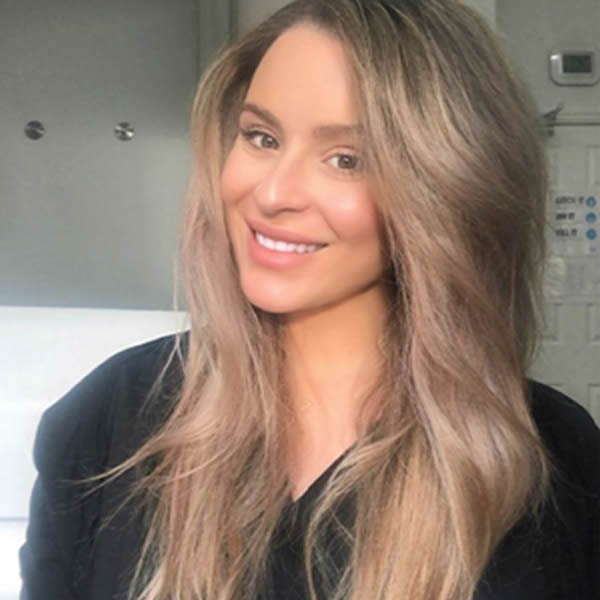Uterine Prolapse
Uterine prolapse occurs when pelvic floor muscles and ligaments stretch and weaken, providing inadequate support for the uterus. The uterus then slips down into or protrudes out of the vagina. Uterine prolapse can happen to women of any age, but it often affects postmenopausal women who’ve had one or more vaginal deliveries. Damage to supportive tissues during pregnancy and childbirth, effects of gravity, loss of estrogen, and repeated straining over the years all can weaken your pelvic floor and lead to uterine prolapse. If you have mild uterine prolapse, treatment usually isn’t needed. But if uterine prolapse makes you uncomfortable or disrupts your normal life, you might benefit from treatment.
Symptoms
Uterine prolapse varies in severity. You may have mild uterine prolapse and experience no signs or symptoms. If you have moderate to severe uterine prolapse, you may experience:
- Sensation of heaviness or pulling in your pelvis
- Tissue protruding from your vagina
- Urinary problems, such as urine leakage or urine retention
- Trouble having a bowel movement
- Low back pain
- Feeling as if you’re sitting on a small ball or as if something is falling out of your vagina
- Sexual concerns, such as sensing looseness in the tone of your vaginal tissue
- Symptoms that are less bothersome in the morning and worsen as the day goes on
Causes
Pregnancy and trauma incurred during childbirth, particularly with large babies or after a difficult labor and delivery, are the main causes of muscle weakness and stretching of supporting tissues leading to uterine prolapse. Loss of muscle tone associated with aging and reduced amounts of circulating oestrogen after menopause also may contribute to uterine prolapse. In rare circumstances, uterine prolapse may be caused by a tumor in the pelvic cavity . The following are recognised risk factors for developing uterine prolapse: Increasing age (risk doubles with each decade of life), Vaginal delivery, Increasing pregnancies and vaginal births, Overweight (BMI 25-30) and obesity (BMI >30) and Spina bifida and spina bifida occulta (a congenital condition of the spinal cord, associated with nerve weakness of the lower portion of the body.
Other Possible risk factors for develpoing uterine prolapse are:
- Problem during childbirth, such as: Delivering Big babies,prolonged second stage of labour, Episiotomy, Anal sphincter injury, Epidural anaesthesia, Use of forceps, Use of oxytocin drip in labour, Age <25 years at first delivery.
- Family history of prolapse.
- Constipation
- Chronic Obstructive Airway Disease or Chronic Cough.
- Connective tissue disorders, g. Marfan’s syndrome, Ehlers-Danlos syndrome.
- Previous hysterectomy.
- Menopause
- Occupations involving heavy
Treatments and drugs
If you have mild uterine prolapse, either without symptoms or with symptoms that don’t bother you, you probably don’t need treatment. However, your pelvic floor may continue to lose t one, making uterine prolapse more severe as time goes on. Simple self-care measures, such as performing exercises called Kegels to strengthen your pelvic muscles, may provide symptom relief.
Kegel exercises strengthen your pelvic floor muscles, which support the uterus, bladder and bowel. A strong pelvic floor provides better support for your pelvic organs and relief from symptoms associated with uterine prolapse. To perform Kegel exercises, follow these steps:
- Tighten (contract) your pelvic floor muscles — the muscles you use to stop urinating.
- Hold the contraction for five seconds, then relax for five seconds. (If this is too difficult, start by holding for two seconds and relaxing for three seconds.)
- Work up to holding the contractions for 10 seconds at a time.
- Do three sets of 10 repetitions each day.
Also, maintaining a healthy weight and avoiding heavy lifting may help reduce pressure on supportive pelvic structures. For more-severe cases of uterine prolapse, treatment options include:
- Vaginal pessary. This device fits inside your vagina and holds your uterus in place. Used as temporary or permanent treatment, vaginal pessaries come in many shapes and sizes, so your doctor will measure and fit you for the proper device. But a vaginal pessary may be of little use if you have severe uterine prolapse. Also, a vaginal pessary can irritate vaginal tissues, possibly to the point of causing sores (ulcers) on vaginal tissues, and it may interfere with sexual intercourse.
- To repair damaged or weakened pelvic floor tissues, doctors often use a vaginal approach to surgery, although sometimes doctors recommend an abdominal surgery. A vaginal hysterectomy, which removes your uterus, also may be needed.
As an alternative to vaginal and abdominal surgery, your doctor may recommend minimally invasive (laparoscopic) surgery. This procedure involves smaller abdominal incisions, special surgical instruments and a lighted camera-type device (laparoscope) to guide the surgeon. In some cases, surgical repair may be possible through a graft of your own tissue, donor tissue or some synthetic material (mesh) onto weakened pelvic floor structures to support your pelvic organs. Which surgery and surgical approach your doctor recommends depends on your individual needs and circumstances. Each surgery has pros and cons that you’ll need to discuss with your surgeon.
If you plan to have more children, you might not be a good candidate for surgery to repair uterine prolapse. Pregnancy and delivery of a baby put strain on the supportive tissues of the uterus and can undo the benefits of surgical repair.
Surgery to Suspend the uterus
Suspension treatment holds the uterus in place and is recommended if you want to have children in the future. There are several types of suspension treatment, which are outlined below. These may be carried out under general anaesthetic, where you are put to sleep, or a spinal anaesthetic, where you are numb from the waist down. For many types of suspension treatment, a synthetic mesh (suspension sling) is inserted into the vagina either to support the sagging uterus or to prevent future prolapse of the vagina. The main mesh treatments are:
- Sacrohysteropexy, where one end of the mesh is attached to the cervix (entrance to the uterus) and the other to a bone in the spine to hold the uterus in place.
- Sacrocolpopexy, where one end of the mesh is attached to the top of the vagina to prevent the vagina collapsing. This is done at the same time as a hysterectomy.
- Infracoccygeal sacropexy, where the mesh is inserted through the buttocks and into the back of the vagina.
Also, for women with major medical problems, the risks of surgery might outweigh the benefits. In these instances, pessary use may be your best treatment choice for bothersome symptoms.
Hysterectomy – A hysterectomy is a major operation that involves removing the uterus. It is considered to be the most effective treatment, although it can put women at increas ed risk of other types of prolapse, such as vaginal vault prolapse (where the top of the vagina falls in). You cannot get pregnant after having a hysterectomy.









Leave a Reply
Want to join the discussion?Feel free to contribute!